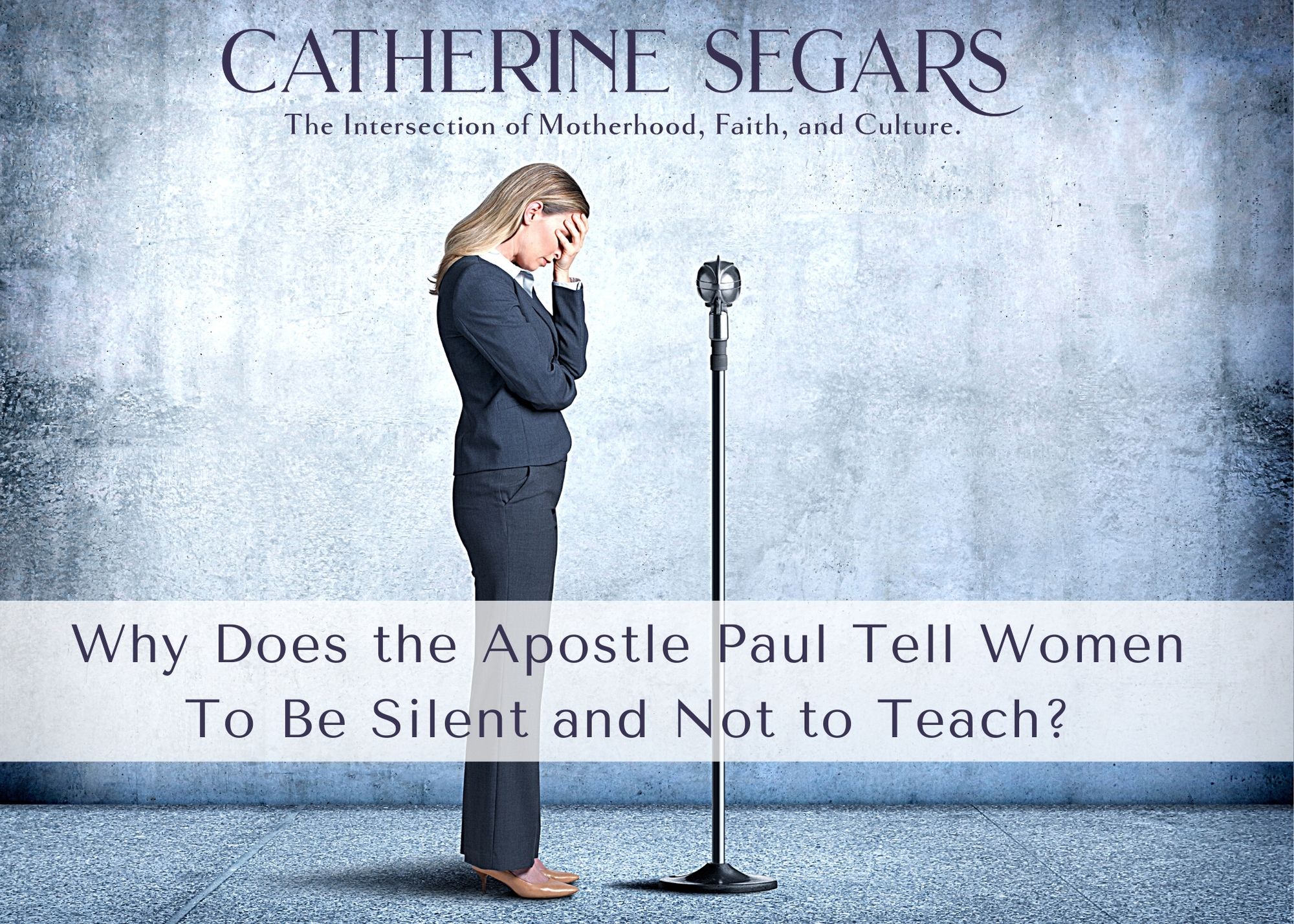Why Does the Apostle Paul Tell Women to Be Silent and Not to Teach?
August 3, 2021
This article is the last in a three part series on women in ministry published by Crosswalk and Bible Study Tools. The first article discussed the critical roles that women played in Scripture. The second chronicled the difficult plight of women historically and how Scripture liberates women. (That article was a 2021 Selah Award finalist, btw. Woot!) Now finally, the third installment of this trilogy examines the passages in the New Testament that seem to restrict women.
I know that this is a controversial topic in the church. Believe me, I know. I have the inquisitions in my email inbox to prove it. I also have many letters of gratitude, thanking me for shining a light on this critically important topic. Whichever side you are on, I think that there are valid reasons to reexamine these passages. Our understanding of women in ministry and society must be consistent with all of Scripture, not just a few select verses. Consider what the Bible has to say about women from Genesis to Revelation as well as the vital history necessary to understand the Scriptural context by reading each of these articles:
And finally, here is my concluding article:
Why Does the Apostle Paul Tell Women to Be Silent and Not to Teach?
More than any other ancient book, we see women operate with incredible grit and determination throughout Scripture, accomplishing amazing feats of perseverance, tenacity, fortitude, courage, and strength.
In the Old Testament, Sarah births a nation at the age of 90. Jochebed defies the Pharaoh to rescue her son. Miriam prophesies and sings over a fledgling nation. Deborah commands armies as the chief prophet and judge in the land. Jael assassinates the enemy. Jehosheba preserves the lineage of David. Huldah instructs the king. Rahab operates as a spy. Esther saves her people.
In the New Testament, an unwed girl accepts a divine, dangerous assignment that changes the course of human history. Anna becomes the first evangelist, prophesying that the Messiah has come. Mary lavishes her inheritance on the Messiah’s feet.
The women at the tomb are the first to testify of Christ’s resurrection. The women at Pentecost prophesy and speak in other tongues. Priscilla instructs Apollos. Chloe leads a house church. Phoebe is a deacon and currier of the Gospel. Junia is an apostle.
And yet, the very things that many of these women did in Scripture, they cannot do in some Christian circles today.
To continue reading on CROSSWALK, click on the image below:
“Five Myths About Motherhood that Make You Feel Mere,
and Why They’re Wrong”
Sign up to be encouraged with the e-book
Meet catherine
Catherine Segars is an award-winning actress and playwright — turned stay-at-home-mother—turned author, podcaster, speaker and blogger. She is dedicated to helping parents be a godly example for their kids in an ungodly world.
Brand Design + Website by Carrylove Designs
@catherinesegars
Brand + Website Design by Carrylove Designs



